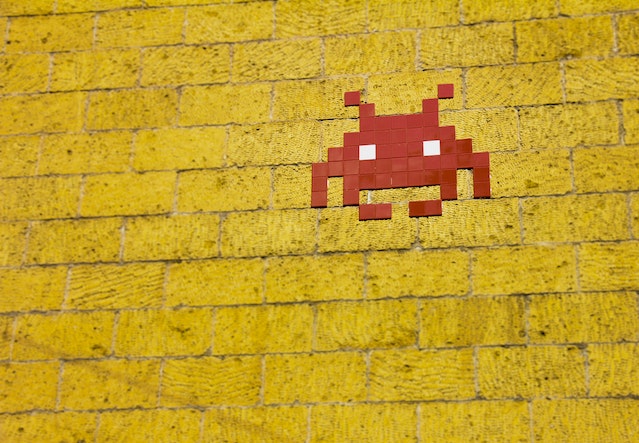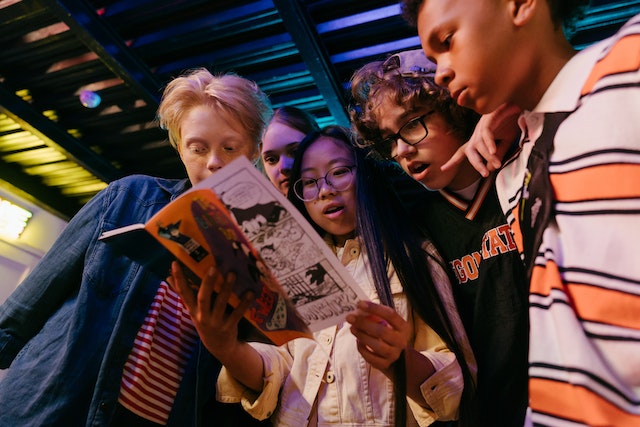Nostalgia in Pop Culture
Nostalgia is a powerful force in pop culture. It refers to the yearning and longing for a past time or event that is associated with positive memories. Pop culture has always used nostalgia to evoke emotions in its audience, and it has been a popular theme in movies, TV shows, music, and fashion. It can take many forms, including movies and TV shows set in a particular era, music that references a specific time or genre, and fashion inspired by past trends. Nostalgia is often used to create a sense of familiarity and comfort in the audience.
-
As time moves forward, there will be a growing nostalgia for more recent times. We are already seeing this with the rise of '90s nostalgia in pop culture. As the generation that grew up in the '90s becomes more nostalgic for their childhood, we can expect to see more media that references this era.
-
As nostalgia becomes more popular, it is possible that we will start to see nostalgia for nostalgia. This means that people will become nostalgic for the nostalgia of the past. We are already seeing this with the rise of '80s nostalgia in the early 2000s. As people become nostalgic for the '80s, we may start to see media that references the nostalgia for that era.
-
As the world becomes more globalized and interconnected, it is possible that we will start to see nostalgia for times and places that never existed. This could take the form of media that references a romanticized version of the past or a fictional time or place.
The Power of Social Media in Pop Culture
Social media has already had a significant impact on pop culture in recent years, and this trend is only set to continue in the future. As we become increasingly connected through social media, the way we consume and interact with pop culture is likely to change in a number of ways. Here are some potential ways in which social media could impact pop culture in the future:
-
More interactive experiences, such as fan communities and live-tweeting events, virtual reality concerts and interactive movies where viewers can choose the plot.
-
Increased diversity: Social media has provided a platform for underrepresented groups to have their voices heard, and this could lead to increased diversity in pop culture.
-
Greater influence of online content creators: YouTubers and TikTokers have amassed large followings and influence. In the future, these creators could potentially even surpass traditional celebrities.
-
More personalized content: With the help of algorithms and data analytics, social media platforms are able to deliver increasingly personalized content to users. This could lead to a more customized pop culture experience.
-
Increased scrutiny and accountability: Social media has also made it easier for fans to hold pop culture creators and companies accountable for their actions. This could lead to increased pressure on creators and companies to be more socially responsible and to create content that aligns with the values of their audience.
Pop culture is constantly evolving and changing, and the future looks bright for the industry. From technology and diversity to sustainability and nostalgia, we can expect to see a wide range of trends and developments in the years to come. Whether you're a fan of music, movies, or fashion, there's something to look forward to in the world of pop culture.
Nostalgia in Pop Culture
Nostalgia is a powerful force in pop culture. It refers to the yearning and longing for a past time or event that is associated with positive memories. Pop culture has always used nostalgia to evoke emotions in its audience, and it has been a popular theme in movies, TV shows, music, and fashion. It can take many forms, including movies and TV shows set in a particular era, music that references a specific time or genre, and fashion inspired by past trends. Nostalgia is often used to create a sense of familiarity and comfort in the audience.
-
As time moves forward, there will be a growing nostalgia for more recent times. We are already seeing this with the rise of '90s nostalgia in pop culture. As the generation that grew up in the '90s becomes more nostalgic for their childhood, we can expect to see more media that references this era.
-
As nostalgia becomes more popular, it is possible that we will start to see nostalgia for nostalgia. This means that people will become nostalgic for the nostalgia of the past. We are already seeing this with the rise of '80s nostalgia in the early 2000s. As people become nostalgic for the '80s, we may start to see media that references the nostalgia for that era.
-
As the world becomes more globalized and interconnected, it is possible that we will start to see nostalgia for times and places that never existed. This could take the form of media that references a romanticized version of the past or a fictional time or place.
The Power of Social Media in Pop Culture
Social media has already had a significant impact on pop culture in recent years, and this trend is only set to continue in the future. As we become increasingly connected through social media, the way we consume and interact with pop culture is likely to change in a number of ways. Here are some potential ways in which social media could impact pop culture in the future:
-
More interactive experiences, such as fan communities and live-tweeting events, virtual reality concerts and interactive movies where viewers can choose the plot.
-
Increased diversity: Social media has provided a platform for underrepresented groups to have their voices heard, and this could lead to increased diversity in pop culture.
-
Greater influence of online content creators: YouTubers and TikTokers have amassed large followings and influence. In the future, these creators could potentially even surpass traditional celebrities.
-
More personalized content: With the help of algorithms and data analytics, social media platforms are able to deliver increasingly personalized content to users. This could lead to a more customized pop culture experience.
-
Increased scrutiny and accountability: Social media has also made it easier for fans to hold pop culture creators and companies accountable for their actions. This could lead to increased pressure on creators and companies to be more socially responsible and to create content that aligns with the values of their audience.
Pop culture is constantly evolving and changing, and the future looks bright for the industry. From technology and diversity to sustainability and nostalgia, we can expect to see a wide range of trends and developments in the years to come. Whether you're a fan of music, movies, or fashion, there's something to look forward to in the world of pop culture.














